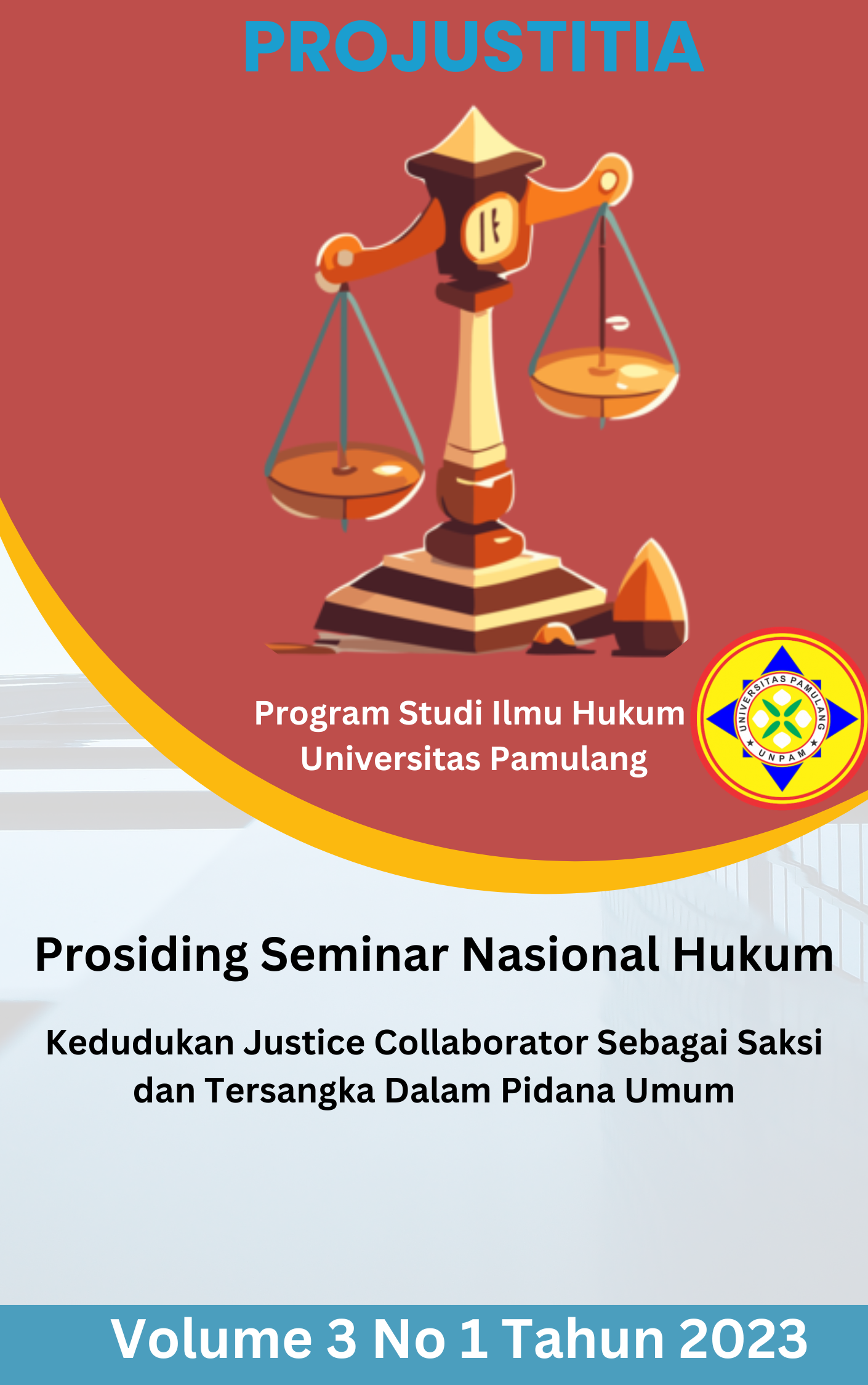KEDUDUKAN DAN HAK WARIS ANAK ANGKAT ATAS HARTA ORANG TUA ANGKAT BERDASARKAN HUKUM ISLAM, ADAT, DAN PERDATA (Ditinjau Dari Putusan Mahkamah Agung Nomor 32 PK/Ag/2018)
Abstract
The existence of a child is the most coveted thing for many people. Children are the successors to the family lineage and are the hope for their parents when they are old. The family will feel perfect if it is composed of father, mother and their children. But there are times when some people cannot have a perfect family because they have not been given a gift by God, namely in the form of children. Usually for families like this they choose to adopt where the child adoption process itself must be carried out based on existing legal regulations. The process of adopting a child results in new legal provisions, if a disaster occurs and results in the death of the adoptive parent it will occur. Social changes regarding changes in the assets left behind. Furthermore, an adopted child has the opportunity to get a mandatory will. Execution of the will does not require proof that the will was said or desired, but its implementation is based on legal reasons justifying that the will must be carried out. This research seeks to compare three legal systems regarding the status of adopted children. Based on this research using a juridical-normative approach, it is concluded that the position of an adopted child in the Islamic legal system does not break the blood relationship between the adopted child and his biological parents so that the adopted child does not become the heir of his adoptive father except through the obligatory testament of not more than of 1/3 part. In positive law it is stipulated that adopted children obtain the same position as biological children of the adoptive father so that adopted children become heirs of adoptive parents because of adoption, all civil relations that stem from birth are severed (between the child and the biological parents). Whereas in customary law the position of adopted children depends on the jurisdiction, because several customary areas in Indonesia differ in determining the position of adopted children.
Keywords : adopted children, adoptive parents, heirs


